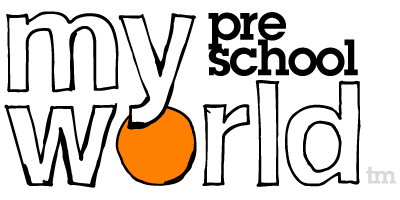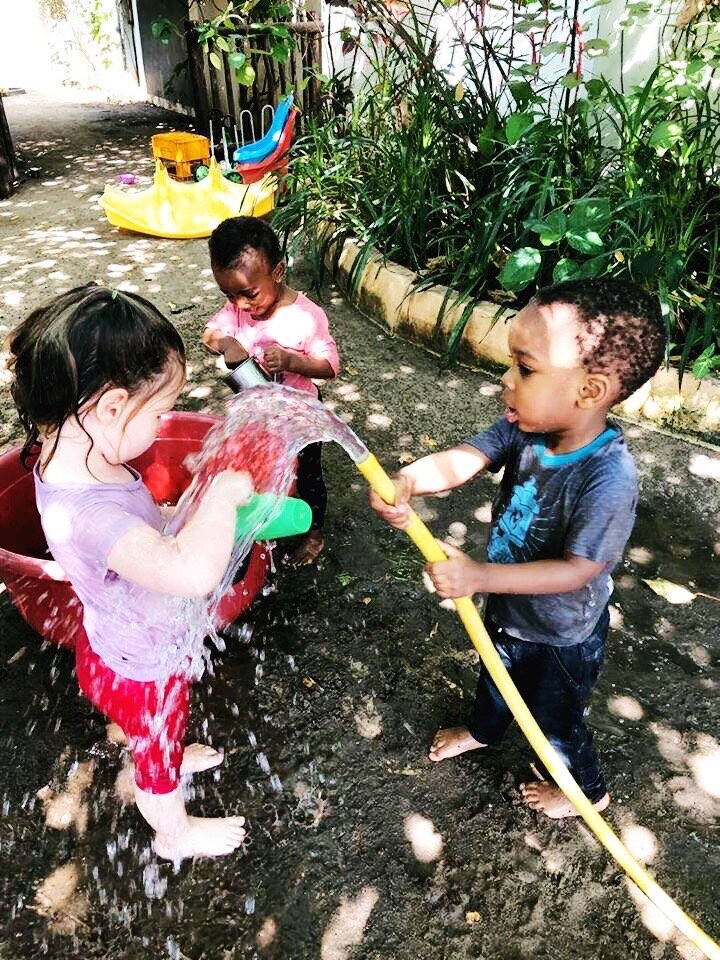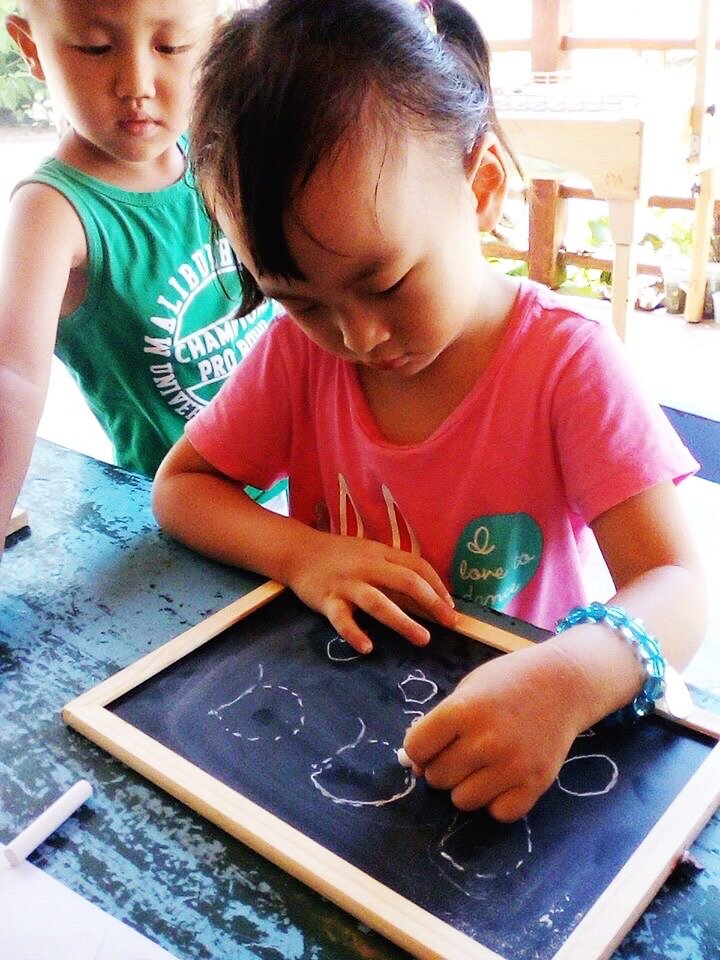PRESCHOOL
The curriculum for our one to three year olds is based on multi-sensorial experiential learning. The curriculum has been devised to provide the children with an enriched hands-on play based program. The weekly schedule includes messy play, sand and water play, swimming and physical education sessions (in the playground). The two year olds have cooking once a week which enables them to learn about biology, science and maths in a co-operative environment (a great favourite)!
The children have sessions of self choice (free flow) play most days which enable them to socialize with thechildren of other classes and be involved in long periods of self initiated play. This helps to develop the concentration span and to make choices.
Both centers have environments that support integrated learning with all areas of discovery set up for the children to access throughout the day. This is based on brain research that shows children make integral links and build new brain connections when they can manipulate and integrate materials and learning across the environment. We do not believe in moving young children to different centers every half hour since this interferes with the learning process and affects concentration, focus and the ability to stay connected with the learning materials.
We also work on teaching them skills such as independence, responsibility, empathy and how to resolve conflict. Small class sizes (16 children with 4 adults in the 1-3 year classes and 16 children with 3 adults in the rest of the classes) allows for individual attention.
Language and vocabulary are enhanced through conversations, singing, reading books and finger rhymes. We support the love of books byour home reading program which begins from the one-three year classes.
KINDERGARTEN
The curriculum for our three to six year olds is based on observation of the children’s interests to create a child led project based curriculum.This approach is known as emergent curriculum.
Over the past some of our projects have been on; under the sea, birds, magic shows, dinosaurs, crabs, the solar system etc.
The advantage of supporting a child led curriculum is that the children are fully involved in the process of learning and understanding since the topics stem from their interests.
The teachers are facilitators for the environment and provide the materials needed to explore each interest in depth. This is done through; providing resources such as topic books, videos, photos, stories and information, planning relevant field trips to interesting locations (past trips have included the museum, the port, the seaside, the Tinga Tinga village etc) and revisiting documentation.
The children’s work is documented through write ups, anecdotes, photographs and observations. The projects are shared with parents through documentation panels and project books. Parents are informed about the children’s interests through newsletters and homework assignments.
Alongside the project work, the teachers organize regular sessions of self choice (free flow) play. These sessions are open class sessions whereby the children can move from one area/activity to another and fully immerse themselves in their chosen activity.
These sessions have proved a great success with the children and enable them to develop their concentration spans, socialize, collaborate, problem solve and make decisions with their learning.
LANGUAGE & LITERACY
The academics are supported through a hands-on literacy and language program. We use the ‘Jolly Phonics’ program; a fun multi-sensorial phonic based resource. The children love the program and the teachers are convinced this is a program for children by children! For more information please visit: www.jollylearning.co.uk and http://www.ginn.co.uk/.
Older children are taught reading through guided reading sessions using the Ginn Lighthouse program and an online reading resource which enables each child to keep their very own copy of each book. The children love that!
MATH & NUMERACY
Our Math program is hands on with plenty of games, books and songs to teach abstract concepts. We use minimal worksheets as we know that children understand complex concepts much better through hands-on activities and experiential learning.
All the areas of the preschool and the kindergarten curriculum are linked through the weekly schedule. This includes sand and water play, swimming, cooking, physical education, science, art, drama and multimedia sessions. The three to six year olds have regular access to the computers in their classrooms.
SCIENCE
Children are always eager to learn about the world around them and what better way to support this love of learning and natural curiosity than through science? Our weekly science program is hands on and enables children to learn complex scientific concepts through explorations based on understanding. The weekly experiments are linked through the curriculum integrating meaningful math, literacy, creative arts and other subjects.
“Equipped with his five senses, man explores the universe around him and calls the adventure Science. - Edwin Powell Hubble”
“The fact is that given the challenges we face, education doesn’t need to be reformed — it needs to be transformed. The key to this transformation is not to standardize education, but to personalize it, to build achievement on discovering the individual talents of each child, to put students in an environment where they want to learn and where they can naturally discover their true passions.”










